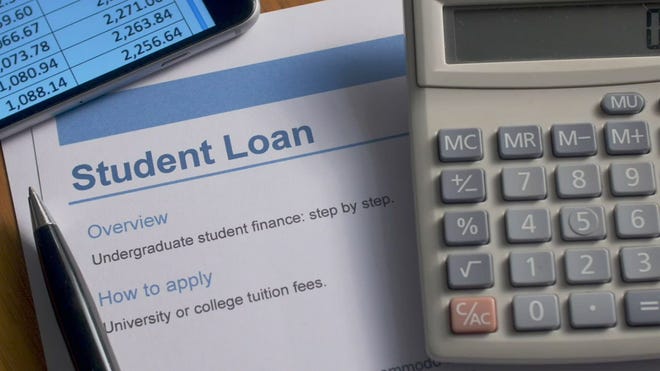Why you should pay your student loan even if the deferral is extended
As the COVID-19 pandemic began to ravage the nation and the world in early 2020, one of the biggest impacts – aside from the disease itself – was affecting our economy. By March 2020, businesses of all types had to temporarily close (with some never reopening), while others were forced to drastically reduce their workforce to make up for the loss of business.
In addition to the health crisis, to avoid an economic crisis, the federal government rolled out a $2 trillion stimulus package to be distributed in a variety of ways, including direct payments to taxpayers, small business loans and expanded unemployment benefits.

In addition, the federal government has created a program to temporarily “suspend” student loan payments. This was commonly referred to as “student loan indulgence”. This program started in March 2020 and has been extended several times over the past two years. It was scheduled to expire on May 1, 2022, but the Biden administration extended it again to August 31, 2022, with the possibility of further extensions.
For some, student loan deferrals have allowed those struggling financially to weather these trying times. But for others whose income has either never been interrupted by COVID-19 or who have fully recovered from the March 2022 financial crisis, the question is, “Should I resume my student loan payments even though I don’t have to?”
As a financial advisor, I have advised a number of my clients with student loan debt to start paying them off for four main reasons:
• Debt affects your credit score. The amount of debt you have drastically affects your credit score. When your student loan balance goes down, your credit score goes up. So, if you can afford your student loan payments and start making them again, it will greatly improve your credit score.
Hear more voices from Tennessee:Subscribe to the weekly Opinion newsletter for insightful and thought-provoking columns.

• Without student loans, you can achieve other goals. Another financial impact of the COVID-19 pandemic is the rapid rise in inflation. This is especially true when it comes to home and car purchases. Two major factors in the possibility of buying a home or vehicle are your ability to make the payment and your underlying credit rating. When the student loan debt is paid off, it will help you in both areas. It provides extra discretionary income that you can use for other goals, like buying a home or a car, and it improves your ability to be approved for a loan based on better credit history. Even for those who have already been able to buy a home or car, it can allow you to free up the funds for other goals, like taking a vacation or making a larger contribution to your retirement account.
• The program was not intended for people whose financial situation has not changed during the COVID-19 pandemic. The program was designed to help individuals with student loans whose income has been severely cut or eliminated due to the pandemic. If your financial situation is the same as it was before the pandemic or has improved with rising wages, it is morally and ethically justifiable to make timely payments, as a student loan is a contract where money has been borrowed and agreed to be paid at a specific time Time to repay time window. Compliance with a financial contract is a great way to develop positive financial habits.
• Paying off debt helps mental health. Paying off debt not only gives you a great sense of accomplishment, but it often reduces financial anxiety. Additionally, anything we can do to bring ourselves back to a sense of normality after two years of dealing with the changes in our lives due to COVID-19 can have a positive impact on our mental health.
When asked the question, “To pay or not to pay?” It’s important to consider not only what the federal government says you can or can’t do, but also what is the right thing, and in the best interests of you and your family, to do create a higher level of financial and mental health.
Brian Stivers is President and Founder of Stivers Financial Services in Knoxville.


Comments are closed.